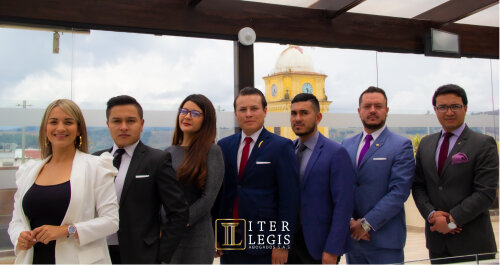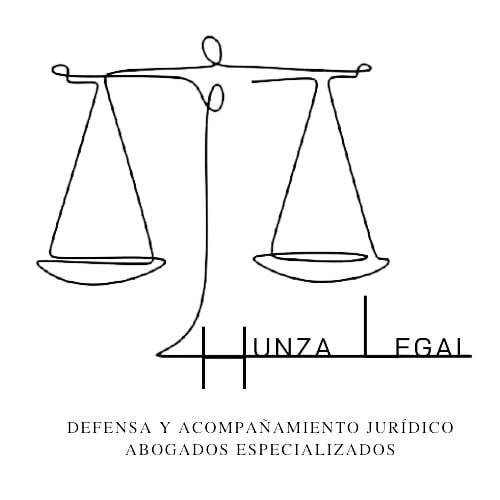Best Pension Lawyers in Tunja
Share your needs with us, get contacted by law firms.
Free. Takes 2 min.
List of the best lawyers in Tunja, Colombia
About Pension Law in Tunja, Colombia
Pension law in Tunja, Colombia, governs the rights and obligations of individuals in relation to retirement benefits, disability pensions, survivor pensions, and other related social security entitlements. Tunja, as the capital of Boyacá Department, operates under national Colombian pension regulations with some local administrative distinctions. The pension system seeks to provide financial security to citizens who have reached retirement age, become disabled, or are survivors of a pension holder. Both public and private sector workers contribute to the pension system during their working years, and the management of these funds is overseen by public and private pension funds (fondos de pensiones).
Why You May Need a Lawyer
Navigating pension matters in Tunja can be complex due to intricate legal requirements and administrative procedures. Many people seek legal advice for the following reasons:
- Disputes or delays regarding pension payments
- Errors in the calculation of pension benefits
- Denial of benefits by pension funds or government agencies
- Uncertainty about required documentation or eligibility
- Handling special pensions, such as disability or survivor benefits
- Transferring pension rights between different regimes (public to private or vice versa)
- Inheritance and survivor claims
- Issues with recognition of contributions made in different regions or under different systems
A lawyer can help you understand your rights, interpret pension laws, handle paperwork, file appeals, and represent you before relevant authorities, ensuring you receive the benefits you're entitled to.
Local Laws Overview
Pension regulation in Tunja is mainly governed by national laws, primarily Law 100 of 1993, which established the Colombian social security system. Key points include:
- Pension Regimes: Colombia operates two main pension regimes - the public regime (Régimen de Prima Media) managed by Colpensiones, and the private individual savings regime (Régimen de Ahorro Individual) managed by private pension funds.
- Eligibility: Most workers become eligible for a pension after reaching the statutory retirement age (currently 62 for men and 57 for women) and having contributed for at least 1,300 weeks to Colpensiones or having the necessary funds in individual savings in private regimes.
- Formalities: The process requires submitting formal applications, supporting evidence of contributions, and identification documents to the relevant pension authority.
- Special Pensions: Special provisions exist for public employees, teachers, armed forces personnel, and those who suffered workplace injuries or permanent disabilities.
- Appeals: There are administrative and judicial mechanisms to challenge denied claims or calculation errors. Tunja has relevant local offices for these processes.
Frequently Asked Questions
What are the main types of pension regimes in Colombia?
There are two: the public regime managed by Colpensiones and private funds managed under the individual savings system by private pension administrators.
How do I know if I am eligible to claim a pension in Tunja?
Eligibility depends on your age, the number of contribution weeks, and the specific regime you belong to. Normally, you must have contributed for at least 1,300 weeks and have reached the required retirement age.
Can I transfer my contributions from a private pension fund to the public regime?
Yes, under certain conditions and within established legal deadlines, you can switch between regimes. Legal advice is recommended to review your case.
What documents do I need to apply for my pension?
Typically, you need your identification, proof of contribution weeks, employment records, and in some cases, civil records or medical reports.
What should I do if my pension application is rejected?
You can request a review, file an administrative appeal, or seek judicial protection (tutela). A lawyer can guide you through these processes.
Are survivors or family members entitled to a deceased worker’s pension?
Yes, under certain conditions, survivors such as a spouse, children, or dependent parents may receive pension benefits.
What happens if there are errors in the calculation of my pension?
You have the right to appeal and request a correction. Supporting documents and legal assistance can help correct any discrepancies.
Can independent or self-employed workers participate in the pension system?
Yes, self-employed and independent workers in Tunja can make voluntary contributions to either public or private pension funds.
How long does it take to process a pension application in Tunja?
Timelines vary but can range from three to six months, depending on whether all required documents are provided and if any additional reviews are necessary.
Should I consult a lawyer for pension issues even if my case seems simple?
While not always required, legal guidance can help prevent errors, avoid delays, and maximize your entitlements, especially in complex or contested cases.
Additional Resources
If you need more information or assistance on pension matters in Tunja, consider contacting or consulting the following resources:
- Colpensiones local branch or website for public pension inquiries
- Private pension fund administrators (e.g., Porvenir, Protección, Colfondos, Old Mutual) for individual savings regime queries
- Boyacá Department Ombudsman’s Office (Defensoría del Pueblo)
- Personería Municipal de Tunja - for administrative guidance and mediation
- Superintendencia Financiera de Colombia - for oversight and complaints regarding pension funds
- Ministry of Labor (Ministerio del Trabajo) - for rights protection and reporting issues
- Local legal aid centers or university legal clinics (consultorios jurídicos)
Next Steps
If you require legal assistance with a pension matter in Tunja:
- Gather all relevant documentation, including your ID, contribution records, employment certificates, and previous communications with pension entities.
- Clearly identify the issue you are facing - whether it is a rejection, delay, error, or other dispute.
- Contact a qualified lawyer experienced in pension law or visit a local legal aid center for an initial consultation.
- Prepare your questions in advance and, if possible, write a brief summary of your case to facilitate review.
- Follow your lawyer's instructions on next steps, which may include official applications, appeals, or mediation.
- Stay informed and maintain copies of all submissions and responses throughout the process.
Remember, acting quickly and seeking professional advice can help protect your rights and streamline the process of securing the pension benefits you deserve.
Lawzana helps you find the best lawyers and law firms in Tunja through a curated and pre-screened list of qualified legal professionals. Our platform offers rankings and detailed profiles of attorneys and law firms, allowing you to compare based on practice areas, including Pension, experience, and client feedback.
Each profile includes a description of the firm's areas of practice, client reviews, team members and partners, year of establishment, spoken languages, office locations, contact information, social media presence, and any published articles or resources. Most firms on our platform speak English and are experienced in both local and international legal matters.
Get a quote from top-rated law firms in Tunja, Colombia — quickly, securely, and without unnecessary hassle.
Disclaimer:
The information provided on this page is for general informational purposes only and does not constitute legal advice. While we strive to ensure the accuracy and relevance of the content, legal information may change over time, and interpretations of the law can vary. You should always consult with a qualified legal professional for advice specific to your situation.
We disclaim all liability for actions taken or not taken based on the content of this page. If you believe any information is incorrect or outdated, please contact us, and we will review and update it where appropriate.











